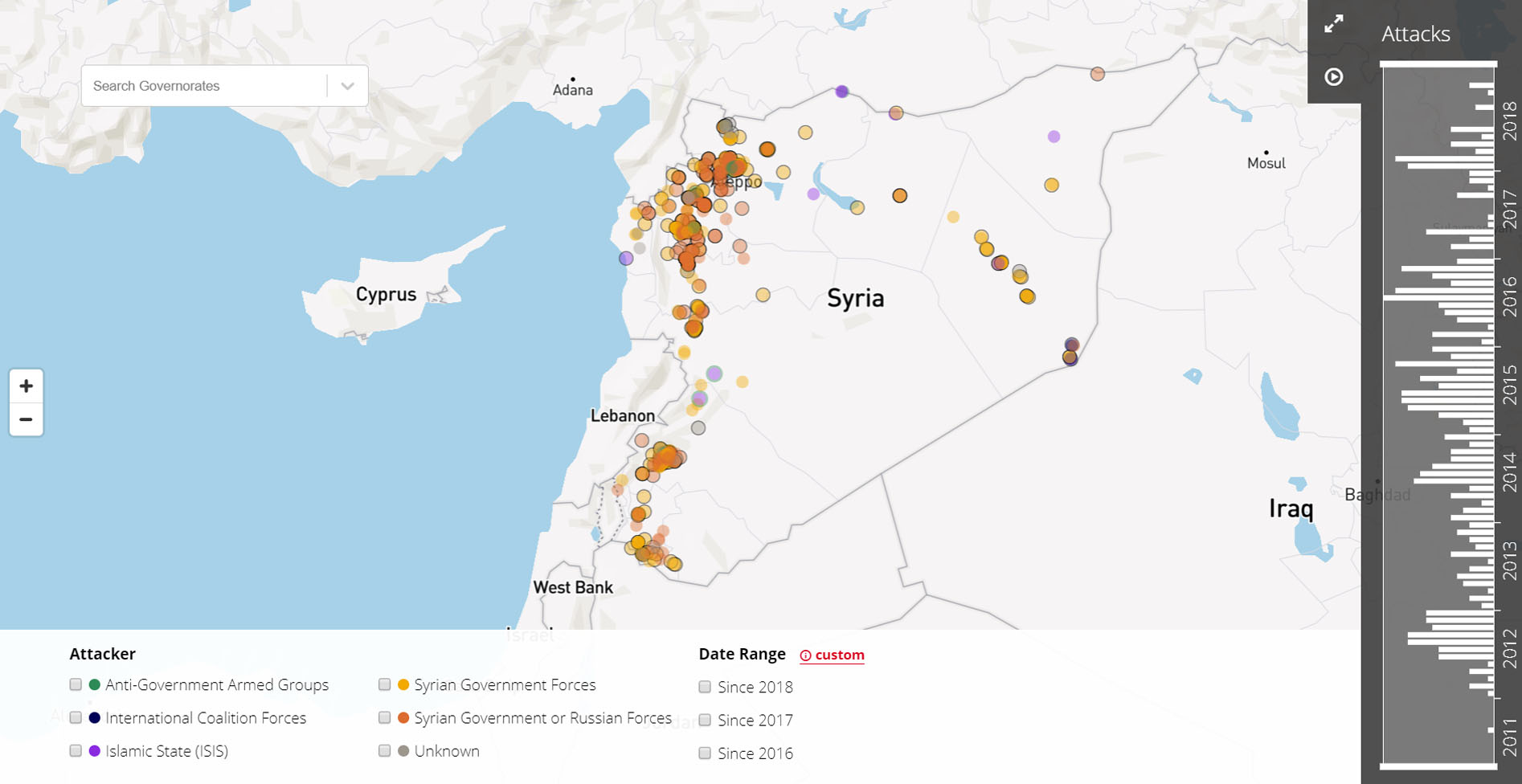Beyond the technology
Documenting Attacks on Health Care in Syria

About the Organization
Physicians for Human Rights (PHR) is an international organization founded on the idea that health professionals, with their specialized skills, ethical obligations, and science-based credibility, are uniquely positioned to expose human rights violations and advocate for accountability for those abuses.
Project Description
Since the beginning of the conflict in Syria, the ongoing assault by the Syrian government and its allies on health care facilities and personnel have underscored the willingness of the regime of President Bashar al-Assad to brazenly target civilians with utter disregard for international humanitarian law. As a strategy of war, it is effective. It is also illegal. International humanitarian law requires special protections for medical personnel and facilities to ensure the functioning of health care throughout a conflict. It also prohibits the targeting of civilians, including wounded combatants receiving care. Any attack that deliberately targets health care facilities, or that does not take appropriate measures to avoid the destruction of health care facilities, is potentially a war crime.
PHR has systematically researched, documented, and corroborated attacks on health facilities since the start of the Syrian conflict in 2011. In addition to documenting and mapping the attacks in real time, the intent of the project is to also create a post-conflict database for justice and accountability efforts.
Over the lifespan of the project, and through a rigorous verification and corroboration process, PHR has documented almost 1,400 individual attacks on health facilities perpetrated by at least five different armed forces, including Syrian government forces, Russian forces, anti-government armed groups, international coalition forces and the Islamic State. The entire data entry process has been conducted remotely in New York by our team, which works with a mixture of online and field sources.
KoboToolbox’s Role
We began using KoboToolbox as our primary data collection tool for this project in 2018, and within a year of being implemented, KoboToolbox has already proven to greatly simplify our existing data collection and reporting workflow. Before making the switch, PHR’s data was divided into at least 10 different datasets, due to various people over the years working on the project and collecting data in different ways and formats.
We migrated and integrated all of our existing data into one unified dataset, which was then imported to KoboToolbox. Having only one dataset has made it much easier for our team to reference and review all of our data. In addition the data entry process naturally cleaned and standardized the data as it was entered.
Since the migration, all new data entries are being collected and added to the unified dataset using KoboToolbox’s web form. This not only has greatly simplified our work flow, data management, onboarding, and other aspects of the project, it has provided PHR with an easy framework and user interface to input complex and multi-layered data points.
After the initial data input from analysts, several PHR experts verify each attack report, adding comments to and changing its status as needed. This is done directly within the table view. From there, data is exported as needed for further analysis – and to update the widely-used interactive map (see above).
Links
Author: Serene Murad, MA. Research Associate at PHR.